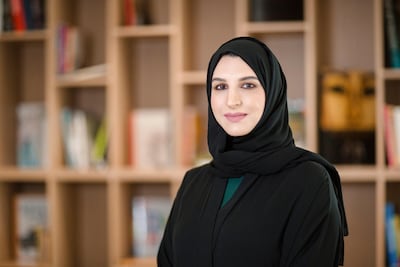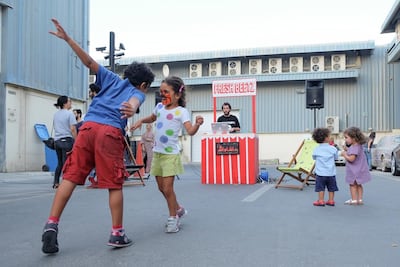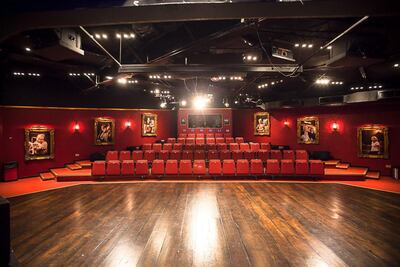In April, the Dubai government launched Al Quoz Creative Zone, a new hub for creative businesses, including those involved in the visual arts, cinema, music and cultural heritage, to be located in the industrial area of Al Quoz.
To kickstart the initiative, Dubai Culture conducted the first Al Quoz Accelerators workshop, aimed at bringing together committee members from the creative community to discuss development plans for the zone and to outline courses of action for the next 100 days.
Sheikh Hamdan bin Mohammed bin Rashid, Dubai Crown Prince and Chairman of The Executive Council of Dubai, launched Al Quoz Creative Zone in early April, with Sheikha Latifa bint Mohammed bin Rashid Al Maktoum, chairperson for Dubai Culture, overseeing the project and establishing a committee.
The exact location of Al Quoz Creative Zone and the timeline for when it will open is not yet known. However, creative entrepreneurs joining the district will be given an Al Quoz Creative Membership, which provides incentives such as fee exemptions, including import and export fees and visa issuance fees, reduced rents and logistics support for businesses.
A programme called Al Quoz Vanguards will also be set up to entice brands and shops to open in the area.
Hala Badri, director general of Dubai Culture, stated the aims of the zone for the local creative industry. "As a collective effort, our ultimate goal is to become a centre of attraction for creative talents from around the world and to become a global community and capital for the creative economy," she said.
Badri also added that the recent Al Quoz Accelerators workshop included the participation of wasl Asset Management Group, the Roads and Transport Authority in Dubai, Dubai Municipality, Dubai Economy, Department of Tourism and Commerce Marketing (Dubai Tourism), alongside those from within Al Quoz community, to delve into matters of multipurpose laws and spaces, physical infrastructure, and ways to support creative businesses in terms of attracting talent.
Though Al Quoz area has been largely industrial, several arts spaces, initially drawn by cheaper rents, have already been operating in the neighbourhood over the past decade.
"Any relief, support and awareness for the creative industries is always appreciated," Charles Pocock, founder of Meem Gallery, told The National. His gallery has been operating in Al Quoz since 2007. "I'm very happy that the government has the vision to support the creative community in Al Quoz. This gives us more protection to keep Al Quoz a cultural area and brings greater awareness to what we do for the Dubai community, expat and Emirati alike."
Meem Gallery, which focuses on modern Arab, North African and Iranian art, has been a part of the UAE art scene since 2005. Pocock says he has seen the expansion of Dubai that has resulted in Al Quoz being an accessible centrepoint that connects to neighbourhoods such as Business Bay, Al Barsha and Umm Suqeim.
Another long-term Al Quoz resident is the privately-run Alserkal Avenue, which features a cluster of warehouses that were converted into art galleries, a community theatre, a contemporary dance studio, fitness studios and restaurants. The owner, Abdelmonem Bin Eisa Alserkal, a longstanding patron of the arts in the UAE, also established the Alserkal Arts Foundation, which has a residency programme for artists and offers grants to creative practitioners.
Within the perimeter is The Courtyard, an art and community centre founded by Dariush Zandi and home to the Courtyard Playhouse theatre, Total Arts gallery and locally-owned boutique shops and cafes.
Speaking of the workshop, he called it "a very important step, especially as it gave us the opportunity to express our stories and the challenges that lay ahead." Zandi, who was once the chairman of the UAE Architectural Heritage Society, said: "My ambition was to find a space for work, living and entertainment, and this project strives to make it happen. For me, the most important result of this project is the success of the emirate, which is ultimately a success for us as well."
The entry of Al Quoz Creative Zone signals the Dubai government’s desire to keep Al Quoz’s cultural identity while also participating in this history.
A variety of fields will fall under the new zone, including publishing, print and digital media, cultural heritage museums, historical sites, cinemas, libraries, art, architecture, fashion, design and even software and gaming.





